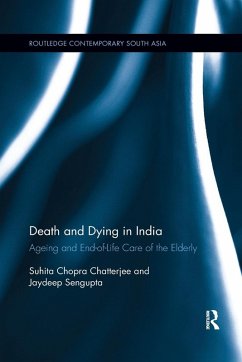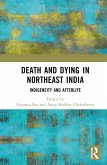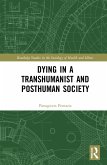Most aged in India are experiencing a highly protracted death in hospitals, entangled in tubes and machines. Such 'medicalised death' entails huge psychological, social and financial costs for both patients and their caregivers. There are also many who are dying in abject neglect. However, Government response to end-of-life care has been almost negligible and there is an acute information deficit on dying matters. This book examines different settings where elderly die, including hospitals, family homes and palliative set-ups. The discourse is set in the backdrop of international attempts to restructure and reconfigure the health delivery system for ageing population. It makes critical commentaries on global developments, offers state-of-art reviews of recent advances, substantiates and corroborates facts by personal narratives and case histories. The book overcomes a segmental understanding of the field by weaving various sociological, medical, legal and cultural issues together. Finally, the authors critically examine biomedicine's potential to meet the complex needs of the dying elderly. In an attempt to bring cultural sensitivity in end-of-life care, they explore the lost Indic 'art of dying' which has the potential to de- medicalise death. Increasing public sensitivity to poor dying conditions of the elderly in India and facilitating changes to improve care systems, this book also demonstrates the limitations of the western specialization of death. It will be of interest to academics in the field of Medical Sociology/Anthropology, Medicine, Palliative care, Public Health and Social Work, Social Policy and Asian Studies.
Hinweis: Dieser Artikel kann nur an eine deutsche Lieferadresse ausgeliefert werden.
Hinweis: Dieser Artikel kann nur an eine deutsche Lieferadresse ausgeliefert werden.









